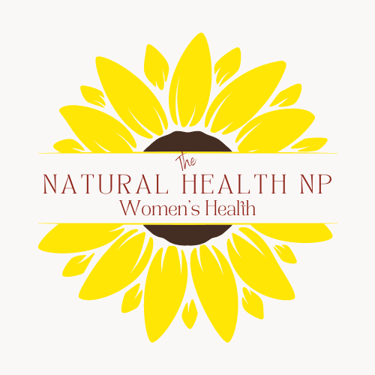Your Gut - Part 3
Things to consider for a healthy gut which helps promote overall wellness.
Miriam D. Hughes, MSN, WHNP-BC, CNM
11/3/20233 min read


It would be virtually impossible to address every person’s individual health and gut concerns in one little video, but I am going to try to hit on the big points. I said in Part 2 that what we take into our body can be helpful, or it can be harmful. It can give our body GOOD information, OR it can give our body BAD information. What we take in can strengthen the whole microbiome or it can weaken it.
It is also about balancing the diversity of gut, making sure we have more of the “good” organisms vs. the “bad”. We do this by eating whole foods. That means avoiding food that offers no benefit and no nourishment, like typical fast-food. We need to get back to basics and use single-ingredients that we combine to make a whole meal. Meaning avoid processed food like boxed or frozen meals. We give health and life to the gut and good microbes by avoiding added sugar. The average American eats over 150 pounds of sugar every year! I’m not talking about the sugar in an apple or berries, but added sugar that the manufacturer put into a product to get you hooked and coming back for more. And sugar substitutes are not any healthier for the body.
This does not mean that you should never have a “treat”, but how often we have these treats, and the amount of the treat, and why we are eating them makes a huge difference. Are you just feeding a craving? Are you stress eating? Are you emotional eating? These are completely different perspectives than enjoying a small piece of cake for a birthday party.
Sometimes our body does need more support than just food. Sometimes we do get an overgrowth of something less than beneficial and we need know that so we can address it. Gut testing is a very useful tool. I like the BIOHM test, which is an easy-to-use, at home-test, that can tell you about the good vs. bad organism counts in your gut. While diet can help, sometimes a good gut balancing protocol of the right herbs and supplements can help overcome a stealth, low-lying infection. Often times these imbalances or infections don’t necessarily make you feel overtly sick, but definitely affect your health, sap your energy, and decrease your overall wellbeing. There is more information on this test, plus a discount code, on my website NaturalHealthNP.com on the gut health page.
While food, microbe balance, and treating infections are the obvious fixes for our gut health other things that can affect our gut health are: not getting enough sleep, not getting enough exercise, or even getting too much exercise. Chronic stress also has a huge impact. However, sometimes it’s a chicken and egg thing. Gut health can affect sleep, stress, energy, etc. and these things can also directly affect the gut! Balance in all things is important.
One more very important ingredient is getting in some form of fermented food every day. Don’t be scared of the word fermented, even plain yogurt is a fermented food. Probiotics can be helpful, especially when starting out, but the benefits of the probiotic seem to go away once you are no longer using them. So, it is more important to get PREbiotics. These are basically food for the good organisms. So higher fiber foods and fermented foods and substances help the good stuff grow and diversify, which helps the other stuff stay controlled.
On my website NaturalHealthNP.com, on the gut health page I have added some great resources like 2 weeks of gut healing meal plans, free, for you to use and share. There is a list of fermented foods you could try. You could also download my general lifestyle changes handout to help guide some of your daily choices. Plus, other resources to check out.
Thank you so much for joining me on this 3 part series. Please remember to share this page and information with others who could benefit from it. And always remember – you are not broken.


